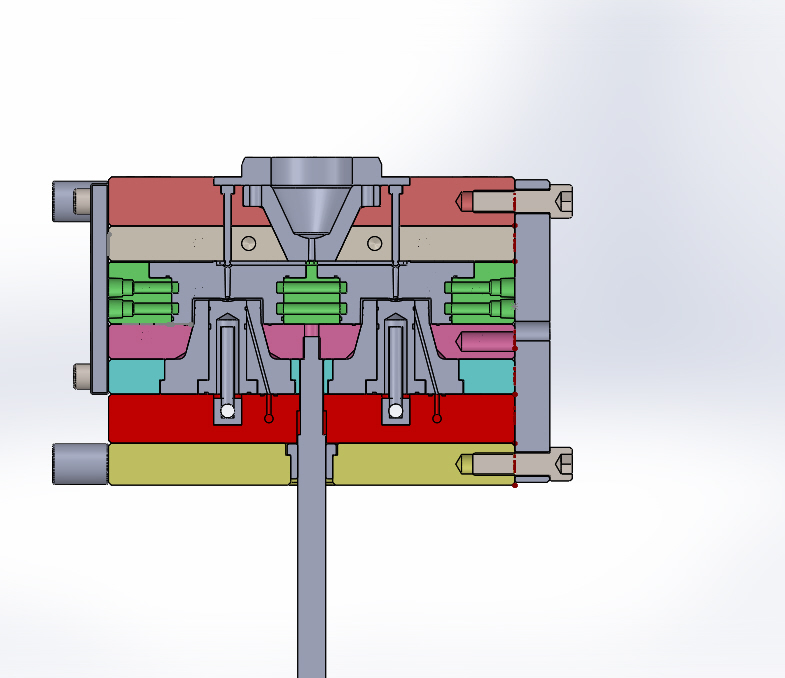- Home
- Lean Principles
- Machine Selection
- Mold Design
- Mold Interlocking
- Mold Making
- Plastic Material Technology
- Molding Process
- Plastic News
- What's New
- Privacy Policy
- Disclaimer
- Site Map
- Poll
- Polishing
- 3D Rapid Prototyping
- Molding Companies
- Contact Us
- Proven Thinwall Packaging Mold Designs For Sale
- MOLD WEIGHT CALCULATOR
- HOT RUNNER VERSUS COLD RUNNER
Injection Molding Material Selection
Injection Molding Material Selection for a particular application requires an intimate knowledge of its purpose. Depending on the application there might be several suitable plastics. There are only a handful of plastic types to choose from however within each type there are thousands of grades which have been formulated to have particular characteristics. If you are trying to choose the best plastic then below are the main application criteria to consider.
Scroll down to the bottom of the page to read about our injection molding material selection service. Applications might include food, medical, drones, lighting, housings, appliances, batteries, building materials, caps, thin wall, fittings, EV, sporting goods, dental, biodegradable, overmolding, gas assisted etc
Materials might include but not limited to:PP, HDPE, LDPE, PS, PC, ABS, PEEK, PEAK, PMMA, PET, SAN, TPE, Cellulose, EVA, PVC, PBT, Nylons, PP+EPDM Rubber, etc Contact us with questions
Can also select a plastic material with renewable resource content such as corn starch.
Indoor or Outdoor Use
Outdoor use is subject to a range of weather conditions. Sun, wind, rain & fluctuating temperatures means only certain plastics will survive. For example, direct UV light from the sun will degrade plastics quickly if a UV stabilizer is not present. Indoor application might also be exposed to UV light but with much less intensity. Indoor applications might be subject to certain chemicals or electrical demands so only choose those plastics that are made for these applications.
Temperature Range
Certain plastics are made for extreme temperatures. Some grades of Nylon 6 will perform well at low temperatures whereas PEAK can be used at over 200 degrees Celsius continuously & used as a metal replacement.
Recyclability
Injection molding material selection criteria will often include recyclability. This is an important point to consider when costing and marketing your product. Recyclability can be used as a marketing point to help sell your product while playing your part in the circular economy. Some virgin pallets are also manufactured with 25% recycled material such as Triesa Plastics Nylon66
Carbon Footprint Reduced
Some plastics can be selected using this criteria. This means they are produced from renewable resources. Carbon footprint, however, does depend upon manufacturing location such as Avients TPE data sheet states.
Chemical Exposure
A plastics such as polycarbonate which are very tough & durable under normal conditions will soften or discolour in the presence of some cleaning chemicals such as thinners
Mechanical Loads & Impact Resistance.
This is especially important for engineering parts but also applies to other industries such as food so that containers can withstand a drop test at different temperatures.
Optical Requirements.
Does the application required excellent optical clarity or is an opaque or coloured finish needed? For excellent clarity, Polycarbonate is a common choice, however, some grades of PP have been developed as a replacement option for polycarbonates clarity (Invista P9R6K-054A).
Colourability of a plastic should be considered when selection a plastic for a particular application as some grades mix certain colours better than others so check with the manufacturer before purchasing.
Processability
The ability to convert plastic pallets in to a useful part will directly affect your costs. Some plastics are easier to injection mould than others so choose a grade which will minimize cycle time & quality issues. For example, Eastman's copolyester product that contains mold release for ease of injection
Additives
There are many different types of additives available in order to tailor a material to a specific application. Here are just a few: flame retardant, hydrolysis resistant (to help withstand exposure to heat & humidity), anti-static, heat stabilizer, lubricant, metal deactivator, mould release, nucleating agent ( to help reduce cycle time), antimicrobial & processing aid.
Conlusion
Injection Molding Material Selection of plastics is not always a simple process especially with so many grades available for so many applications. Food, medical, drones, lighting, housings, appliances, batteries, building materials, caps, thin wall, fittings, EV, sporting goods, dental, overmolding etc. this makes it very difficult to find the right material for the right price.
Injection Molding Material Selection Service
We can help you with selection by offering you up to 4 data sheets from the plastic manufactures all based upon your applications requirements. Price is $AUD95.00 so fill out the form below.
Note we do not make or sell any plastic materials. We just provide Data Sheets from the manufacturers.





